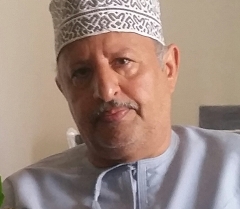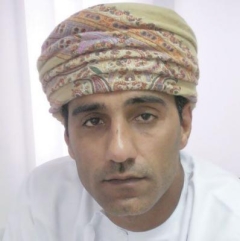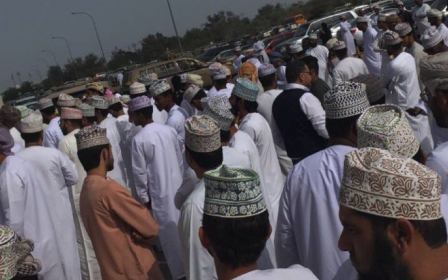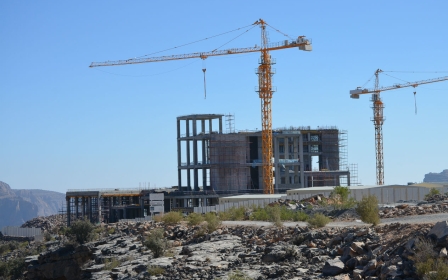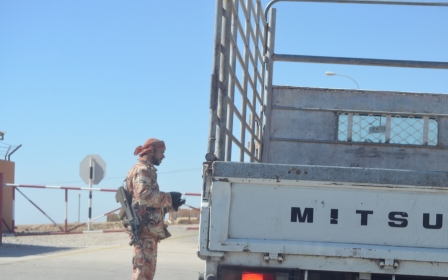UN rights body condemns ‘arbitrary’ jailing of Omani editor
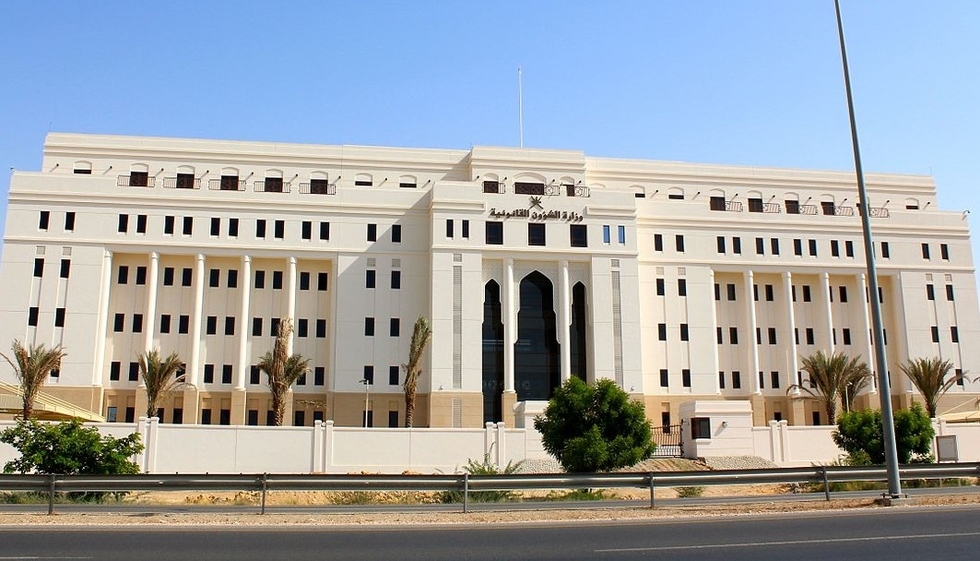
Oman’s arrest and jailing of a newspaper editor in 2016 following the publication of allegations of corruption in the Supreme Court was arbitrary and “lacked any legal basis”, a UN human rights body has said.
Yousef al-Balouchi, then acting editor in chief of Azaman newspaper, was seized from a barber shop on 9 August 2016 following the publication of two articles that accused senior officials in Oman’s top court of corruption.
The first article on 26 July led to the arrest of Azaman’s editor in chief Ibrahim al-Maamari. A reporter, Zaher al-Abri, was also arrested in Muscat on 3 August after speaking to the rights group Committee to Protect Journalists, it was reported.
Maamari told MEE in Oman that he and Balouchi were worried about going after high-level corruption among senior officials and knew the consequences for them would be serious.
“I knew about it before I published. I said to Yousef, 'I am going to publish this'. I talked to someone very close to other side [the government]. I know I am going to jail for seven months after I publish this. But I said if this corruption continues, it is very dangerous for the country.
“We discussed it. Yousef said they are going to close the newspaper. It was very important to do it."
Held incommunicado
In the second article published by Azaman on 7 August, then vice-president of Oman’s Supreme Court, Ali bin Salem al-Nomani, gave an interview in which he accused the Supreme Court chief justice and the deputy president of the court of corruption and criticised the arrest of Azaman’s Maamari.
Balouchi was seized soon afterwards and held incommunicado for a week by Oman’s internal security service, the UN Human Rights Council’s working group on arbitrary detention said in a report released this week. He suffered a serious asthma attack while in detention, leading to his hospitalisation.
Following the arrests the newspaper was closed by the authorities, and remains so today. Balouchi, whose pen name is Yousef al-Haj, was held in solitary confinement for three months prior to the journalists' trial in December 2016.
Oman’s court of appeal sentenced Balouchi and Maamari to one year and six months in prison respectively, on charges of violating the media law and the law on cybercrime, and breaching various provisions of the penal code.
The opinion of the UN Human Rights Council working group on arbitrary detentions on Balouchi's case was adopted in November and made public this week. It came after the Geneva-based Alkarama Foundation referred the case to the WGAD in March 2017.
'Very bad days'
Maamari also spent more than 60 days in solitary confinement. “It was a small room, a very difficult time. They were very bad days. You can’t speak to anyone,” he told Middle East Eye. “If you ask what is the time, [the guard] says ‘no we cant talk to you’."
Speaking to MEE in Oman, Maamari defended the interview with al-Nomani, and said the accuracy of the allegations over corruption published by Azaman have never been challenged.
I am like in a big prison. I am fighting everything now, I can’t leave the country
- Ibrahim al-Maamari, former editor, Azaman
“Nobody from the government told me that what was said in the interview was inaccurate. I want somebody from the government to answer me when we published, is it correct or not? Somebody tell me that what Sheikh al-Nomani said was incorrect.”
Middle East Eye understands from official Oman sources that no formal investigation took place into the allegations made by Nomani.
Since his release from prison last April, Maamari says he is unable to work in journalism. “I am like in a big prison,” he says. “I am fighting everything now, I can’t leave the country.
“When the government sends you to jail, when you finish your time in jail, you can’t start a normal life again. ... Forever, they don’t forget. It’s personal, I mean by publishing something in the newspaper, when the case is closed, you should be free to work, but you can’t.”
Balouchi was released on 23 October last year. The privately owned Azaman newspaper, known for crusading reporting on corruption since its establishment in 2007, was closed permanently following a final Supreme Court ruling on 5 October.
The president of the Supreme Court, Isaac al-Bousaidi, was named in the article which led to the initial closure of the newspaper. This, the Gulf Centre for Human Rights has said, created a clear conflict of interest and violated international standards for fair trial and due process. It was noted by the HRC working group that Bousaidi did not recuse himself during the Azaman trial.
Responding to a letter from the UN Special Rapporteur on freedom of expression, sent to the government in March 2017, Oman denied that Balouchi was charged in relation to his work as a journalist or that he was detained arbitrarily.
Not legitimate
The government said his arrest was because his actions were a threat to public order and he had violated Oman's media laws. It also said he was allowed to appoint lawyers in his defence in a public trial and he was able to appeal the sentence.
However the working group said that the detention and jailing of al-Balouchi violated articles 3, 6 and 9 of the Universal Declaration of Human Rights and that his detention was “clearly connected to his work as a journalist”.
Balouchi’s arrest and detention and the closure of Azaman for reporting on alleged corruption at the highest level of the judiciary was neither legitimate, necessary nor proportionate
- UN Human Rights Council working group on arbitrary detention
“The working group also finds that Mr al-Balouchi’s arrest and detention and the closure of Azaman for reporting on alleged corruption at the highest level of the judiciary was neither legitimate, necessary nor proportionate,” the report added.
The report called on Oman to ratify the International Covenant on Civil and Political Rights, the Convention Against Torture and the convention against enforced disappearance “as a sign of its commitment to defend the liberty of person and to eliminate its arbitrary deprivation.”
Mamaari believes that the pursuit of business deals and private profit by high officials had reached such a stage in 2016 that action needed to be taken to prevent more serious upheaval. “There was corruption in the court and the army, corruption in the leaders, at that time. His Majesty was sick, and there was no one in control in the country. This is very dangerous for the country, very dangerous."
He added: “When you are going to touch this you go straight to jail. This is the big reason.”
Opposition to change
Maamari warned that without reforms to create elected parliaments, an independent judiciary and free media, he sees little reason for optimism for countries in the Gulf region, including Oman.
“Why are these people very opposed to all change? Do you know what’s the reason? These changes are better for the country. When you going to make more freedom for the media, it is better for the country.
“When you have an independent justice system, it is better for the country. They say these changes are very dangerous for the country because the people are still children. They are not ready.
“Why the leaders in this area don’t want to change anything? I don’t know but really I have one reason, not two, not three, not four: corruption, the oil money.”
An Omani official source denied that anyone was immune from the law, and cited previous trials of senior executives and government officials for corruption. “No one is above the law,” said the official.
New MEE newsletter: Jerusalem Dispatch
Sign up to get the latest insights and analysis on Israel-Palestine, alongside Turkey Unpacked and other MEE newsletters
Middle East Eye delivers independent and unrivalled coverage and analysis of the Middle East, North Africa and beyond. To learn more about republishing this content and the associated fees, please fill out this form. More about MEE can be found here.


